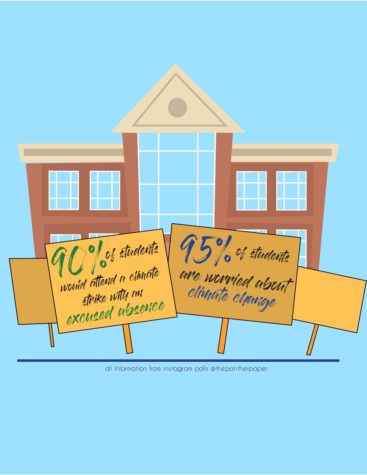How Long Will Party Over Candidate Voting Last?
February 19, 2023
As a first-time voter, approaching the polling station this year felt exciting. It was the primary elections and I had spent the previous night scouring every website I could to analyze the candidates’ qualifications, policies, criticisms and more. Since Florida has a closed primary election, where only people registered with a political party may participate, I could only vote for my chosen party: the Democratic party. My research extended past midnight because, in some sections, I spent time contemplating which candidates to pick between since I did not necessarily like either. Before I went to sleep that night, I asked myself “Why don’t voters have the liberty to vote for another party’s candidate?”
Although not all states have closed primaries, the Florida primaries made me realize how the current voting system divides people by forcing them to choose one political party and stick with it. Americans have developed strict party loyalty and as a result, a growing resentment for the opposing side. Strictly voting for one’s party is not always a bad thing, but it becomes harmful when one votes out of loyalty instead of deservingness, fear of judgment from others or from a lack of research about nominees.
Currently, six states offer straight-ticket voting, which is when a ballot offers one box that, if checked, allows voters to vote for an entire party’s slate of candidates. Many other states have abolished straight-ticket voting on their ballots because it discourages people from informing themselves before they vote and increases partisanship. The widespread abolition of straight-ticket voting aims to decrease partisanship and stop voters from blindly supporting an entire party just because they usually associate it with their baseline ideals.
Many people feel pride and loyalty to their political party and, according to a study conducted by Yale University, only 3.5% of U.S. voters would cast a ballot against their preferred candidate if they expressed undemocratic behavior. The study presented people with a series of questions about hypothetical candidates with different backgrounds and positions on social and economic issues. The study found that voters are willing to forgive undemocratic behavior like gerrymandering and ignoring court decisions to achieve their party’s goals. As social creatures, humans naturally feel loyal to the institutions or groups they belong to. Yet I have seen voters stand by a racist, xenophobic, antisemitic and sexist leader, or an inexperienced, unsupported and unfulfilling leader. Being loyal is usually a great quality that brings people together and creates commitment, but at this point, voters have become blindly loyal to their political parties and their leaders.
How can a country operate if voters blindly support leaders even if their actions go against democratic principles stated in the Constitution? The Democratic party is especially divisive, as the party itself can be broken down into six or more categories of Democrats. Democrats have similar values, but deep divides about policy often lead to standstills and inaction. The Republican party can also be broken down into different categories. Unlike the Democratic party, the Republican party more widely agrees about policy and agendas and disagrees about things such as which nominee to support or how much conservatism to defend. As a Democrat myself, I have spoken with friends and adults who also identify as such and have widely different opinions. I have encountered many Democrats who absolutely refuse to agree with any point, reasoning or policy that the Republican party has offered in the last few years and refuse to ridicule their own party. And the same goes for Republicans who often refuse to agree with any point, reasoning or policy that the Democratic party proposed and refuse to ridicule their own party. The inability to find common ground with those supporting an opposing political party has led to where the U.S. is now, extremely divided.
A study conducted by Penn State University showed that voters on opposing sides struggled or refused to attempt to understand an opposing political party’s perspective. Researchers asked people to explain their support for a political party as a supporter of it would, and many Democrats and Republicans struggled to answer this question. Even though many tried to answer, the study highlights how isolating partisanship has become and how people struggle to empathize with others with different viewpoints. Americans struggle to find common ground and understand others.
A big part of me completely understands. People as a whole do not like to ridicule something they believe in. I often have to remind myself that it is okay not to support a Democrat’s controversial decision if I do not agree with it. Some may worry about ridiculing their party after being a long-time supporter due to fear of judgment from others. But blindly supporting a politician even if one loses support for them just because they reside in one’s party is counterintuitive to voting in the first place. While Americans cannot vote every day since presidential elections are every four years, ⅓ of the senate and the house are still voted on during off-year elections. Before casting a ballot, voters have the chance to re-evaluate their opinions on candidates and ask themselves if they stand by their initial choice, or want to change their opinion.
Be more open. Listen. Even if you do not agree with another party’s decisions, a large percentage of Americans do. Trying to empathize and understand why others think allows one to strengthen their arguments and learn more about the society they live in. If you agree with another party’s policies more so than your own, do not be afraid to research it. The Constitution gives the people the right to vote for who they think is best fit for office, so uphold that right. Voters are afraid others will find out who they voted for and receive a label for supporting that party. I advocate for research, and for always using your vote, and if you agree with something that happens to not align with your designated party, do not freak out and then vote where your opinions lie.












